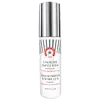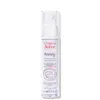What's inside
What's inside
 Key Ingredients
Key Ingredients

 Benefits
Benefits

 Concerns
Concerns

 Ingredients Side-by-side
Ingredients Side-by-side

Water
Skin ConditioningDimethicone
EmollientGlycerin
HumectantRetinyl Propionate
Skin ConditioningRetinol
Skin ConditioningPentapeptide-34 Trifluoroacetate
EmollientHydroxyacetophenone
AntioxidantCaprylic/Capric Triglyceride
MaskingCitric Acid
BufferingDimethicone Crosspolymer
Emulsion StabilisingDimethiconol
EmollientDisodium EDTA
Hydroxyethyl Acrylate/Sodium Acryloyldimethyl Taurate Copolymer
Emulsion StabilisingIsohexadecane
EmollientLaureth-4
EmulsifyingMica
Cosmetic ColorantPolysorbate 20
EmulsifyingPolysorbate 60
EmulsifyingPropanediol
SolventSodium Citrate
BufferingSorbitan Isostearate
EmulsifyingBHT
AntioxidantPhenoxyethanol
PreservativeSodium Benzoate
MaskingCI 77891
Cosmetic ColorantWater, Dimethicone, Glycerin, Retinyl Propionate, Retinol, Pentapeptide-34 Trifluoroacetate, Hydroxyacetophenone, Caprylic/Capric Triglyceride, Citric Acid, Dimethicone Crosspolymer, Dimethiconol, Disodium EDTA, Hydroxyethyl Acrylate/Sodium Acryloyldimethyl Taurate Copolymer, Isohexadecane, Laureth-4, Mica, Polysorbate 20, Polysorbate 60, Propanediol, Sodium Citrate, Sorbitan Isostearate, BHT, Phenoxyethanol, Sodium Benzoate, CI 77891
Water
Skin ConditioningTriethylhexanoin
MaskingCyclopentasiloxane
EmollientCetearyl Alcohol
EmollientCyclohexasiloxane
EmollientCeteareth-20
CleansingPolymethyl Methacrylate
Ceteareth-33
CleansingCaprylic/Capric Triglyceride
MaskingAmmonium Acryloyldimethyltaurate/Vp Copolymer
Oenothera Biennis Oil
EmollientPhenoxyethanol
PreservativeBenzoic Acid
MaskingDisodium EDTA
Retinal
Skin ConditioningTocopheryl Glucoside
EmollientOleoyl Dipeptide-15
Skin ConditioningMica
Cosmetic ColorantSodium Hydroxide
BufferingSilica
AbrasiveBHT
AntioxidantOleoyl Tetrapeptide-31
AntioxidantTocopherol
AntioxidantTitanium Dioxide
Cosmetic ColorantCaramel
Cosmetic ColorantCI 17200
Cosmetic ColorantWater, Triethylhexanoin, Cyclopentasiloxane, Cetearyl Alcohol, Cyclohexasiloxane, Ceteareth-20, Polymethyl Methacrylate, Ceteareth-33, Caprylic/Capric Triglyceride, Ammonium Acryloyldimethyltaurate/Vp Copolymer, Oenothera Biennis Oil, Phenoxyethanol, Benzoic Acid, Disodium EDTA, Retinal, Tocopheryl Glucoside, Oleoyl Dipeptide-15, Mica, Sodium Hydroxide, Silica, BHT, Oleoyl Tetrapeptide-31, Tocopherol, Titanium Dioxide, Caramel, CI 17200
Alternatives
Ingredients Explained
These ingredients are found in both products.
Ingredients higher up in an ingredient list are typically present in a larger amount.
BHT is a synthetic antioxidant and preservative.
As an antioxidant, it helps your body fight off free-radicals. Free-radicals are molecules that may damage your skin cells.
As a preservative, it is used to stabilize products and prevent them from degrading. Specifically, BHT prevents degradation from oxidation.
The concerns related to BHT come from oral studies; this ingredient is currently allowed for use by both the FDA and EU.
However, it was recently restricted for use in the UK as of April 2024.
Learn more about BHTThis ingredient is an emollient, solvent, and texture enhancer. It is considered a skin-softener by helping the skin prevent moisture loss.
It helps thicken a product's formula and makes it easier to spread by dissolving clumping compounds.
Caprylic Triglyceride is made by combining glycerin with coconut oil, forming a clear liquid.
While there is an assumption Caprylic Triglyceride can clog pores due to it being derived from coconut oil, there is no research supporting this.
Learn more about Caprylic/Capric TriglycerideDisodium EDTA plays a role in making products more stable by aiding other preservatives.
It is a chelating agent, meaning it neutralizes metal ions that may be found in a product.
Disodium EDTA is a salt of edetic acid and is found to be safe in cosmetic ingredients.
Learn more about Disodium EDTAMica is a naturally occurring mineral used to add shimmer and color in cosmetics. It can also help improve the texture of a product or give it an opaque, white/silver color.
Serecite is the name for very fine but ragged grains of mica.
This ingredient is often coated with metal oxides like titanium dioxide. Trace amounts of heavy metals may be found in mica, but these metals are not harmful in our personal products.
Mica has been used since prehistoric times throughout the world. Ancient Egyptian, Indian, Greek, Roman, Aztec, and Chinese civilizations have used mica.
Learn more about MicaPhenoxyethanol is a preservative that has germicide, antimicrobial, and aromatic properties. Studies show that phenoxyethanol can prevent microbial growth. By itself, it has a scent that is similar to that of a rose.
It's often used in formulations along with Caprylyl Glycol to preserve the shelf life of products.
Water. It's the most common cosmetic ingredient of all. You'll usually see it at the top of ingredient lists, meaning that it makes up the largest part of the product.
So why is it so popular? Water most often acts as a solvent - this means that it helps dissolve other ingredients into the formulation.
You'll also recognize water as that liquid we all need to stay alive. If you see this, drink a glass of water. Stay hydrated!
Learn more about Water